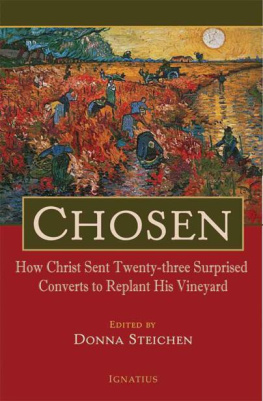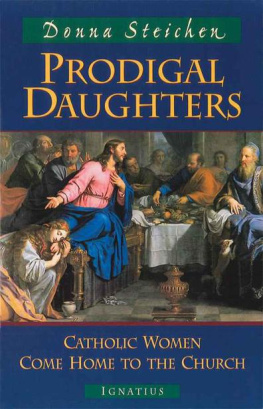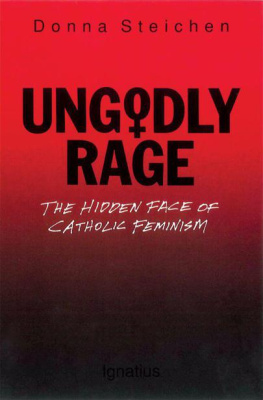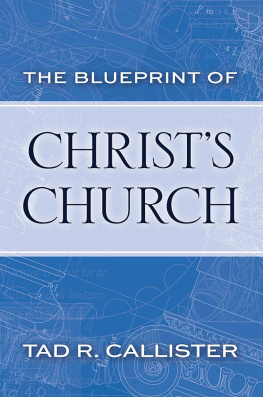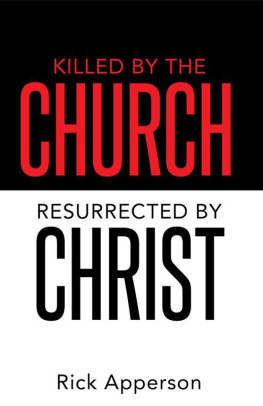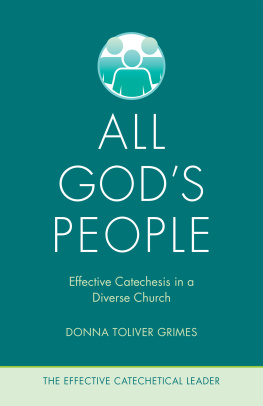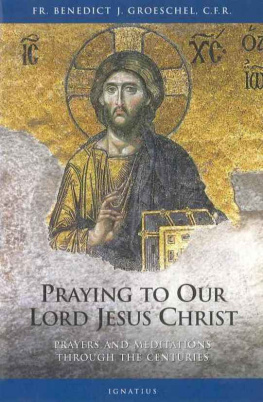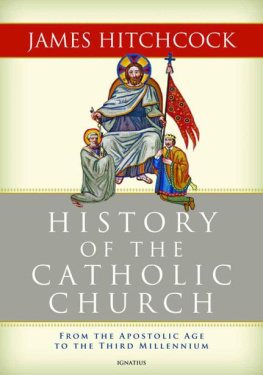CHOSEN
You have not chosen me but I have chosen you, to go and bear fruit that will remain. John 15:16
CHOSEN
How Christ Sent Twenty-Three Surprised Converts to Replant His Vineyard
EDITED BY DONNA STEICHEN
IGNATIUS PRESS SAN FRANCISCO
Cover art:
Vincent van Gogh, The Red Vineyard at Arles
Photo Credit:
Erich Lessing / Art Resource, N.Y
Cover design by Riz Boncan Marsella
2009 Ignatius Press, San Francisco
All rights reserved
ISBN 978-1-58617-340-1
Library of Congress Control Number 2009923625
Printed in the United States of America
Contents
Donna Steichen
Elizabeth Fox-Genovese
Susan Bujnak
Steven W. Mosher
Catherine Schneir
Roy Schoeman
Joseph Pearce
Kristine Franklin
Paul Quist
Stephen Hayden
Carolyn Rae Lemon
Father Augustine Hoa Trung Tran
Kevin Lents
Sarah Christmyer
Stephanie Block
Austin Ruse
William L. Toffler, MD
Father Sebastian Walshe, O. Praem .
Ann Brown Agni
Kari Beckman
Robin Landon Pudewa
Shannon Counihan
Russell L. Ford
Vivian Dudro
Foreword
George Neumayr
In Gibbonian treatments of the decline and fall of post-Vatican II Catholicism, future historians will no doubt record this remarkable fact: even as the Churchs roof collapsed, crushed by winds of change and progress, converts sought shelter underneath it. Why, these historians will wonder, did anyone join this religion at the moment of its disintegration?
The deepest answer is contained in Donna Steichens thesis, a thesis the conversion stories that she has collected in this book wonderfully illustrate. That thesis is simply this: Christ, not man, converts, and while His shepherds may flee, He stays, drawing until the end of time the lost and weary to life upon the unbreakable rock of His Church.
For many years, the American bishops de facto evangelization policy was not to have one. And yet spiritual orphans of the age still crawled to the Churchs door. Who was beckoning them to it if not Christ? Who was assisting their movement if not the Holy Spirit? No earthly attraction explains it. After all, the aesthetic glories of the Church, the pomp and power that attracted the superficial and glamorous in previous ages, had for the most part vanished in the drab years following Vatican II.
Thus, the conversions in the midst of the postVatican II crisis, compiled here by Steichen, seem particularly pure and often entertainingly improbable, bearing testimony to the central truth many of Christs shepherds had forgotten during it: that the Church is not a man-made institution but a divine onea perpetual repository of truth and grace so powerful that not even the darkness of scandal can overshadow it.
Indeed, were the Church a man-made institution, conversions to it at the height of crisis would make no sense, perhaps even appear morbid, like people purchasing a pill after the FDA had declared it ruinous to ones health. But since God, not fallible man, is responsible for conversions to His indefectible Church, they can occur in any place and at any time, even the worst. Christ the Good Shepherd can take the shards of the broken fencean emboldened laity, a courageous bishop or two, a remnant of orthodox schools and ordersand not only protect His flock but enlarge it.
In the course of covering the crisis in the Church journalistically, I have often heard converts say that they entered Christs Church not because of His ministers but in spite of them. A disaffected Anglican student at a secularized Jesuit college once told me a story along those lines. He said that upon informing a nun in Campus Ministry of his desire to enter the Catholic Church, she replied sadly: Why would you want to do that? Having lost interest in the faith herself, she found his eager interest in it baffling.
Such anecdotes are on one level dispiriting but on another strangely consolinginadvertent proof of the Churchs essential dependence on Christ, who promised never to abandon her to persecution, either by the worldly outside her or by the Judases inside her. As heresy occasions more lucid presentations of doctrine, so scandal occasions purification, a renewed cleaving to Christ and His Magisterium by a shocked laity, who can then serve as new instruments of His grace.
At the root of the lack of interest in evangelization among many of the clergy is a crisis of faith, a suspicion that the Church is not divine but just a kind of global therapy center people can take a membership in if they happen to like it. And if they do not, who cares? To the extent that fervor exists among these clergy, it appears in the field of ecumenism, as they seek to patch up every religion on earth except their own.
In the meantime, they dismiss the Churchs past missionary practices as intolerant, and if they do manage to muster up any enthusiasm for conversions, it is often directed at the wrong kindconverts to heterodox Catholicism. To fundamentalist faiths, they even propose what wags have called a prisoner exchange: we will take your liberals, if you take our conservatives.
I was struck by Walter Cardinal Kaspers remark after the Traditional Anglican Communion, a group that represents four hundred thousand people, requested entrance into the Catholic Church. The groups request sounded to me like good news. But not to him.
We are on good terms with the Archbishop of Canterbury and as much as we can we are helping him to keep the Anglican community together, the head of the Pontifical Council for Christian Unity told the United Kingdoms Catholic Herald . Its not our policy to bring that many Anglicans to Rome.
Never mind that at the very moment he was making this comment, the Vatican, under the leadership of Pope Benedict XVI, had issued a Doctrinal Note on Some Aspects of Evangelization reiterating that bishops exist to lead all humanity to Christ in the Church.
Had the first bishops, the apostles, adopted Cardinal Kaspers ambivalence, they would have shooed crowds away from Jesus as they approached Him to hear His words of salvation. These are, to say the least, mystifying times, in which many of the bishops welcome the worldly heterodox with one hand, then halt orthodox searchers with the other; in which they lower the bar of entry for the Tony Blairs even as they elevate it for the traditionalists.
Fortunately, orthodox searchers can still hear Christs voice through all the ecumenical din and false teaching, and this book is rich in that compelling drama. From witches to the witch doctors of modern medicine, from ferocious skeptics and sinners to ordinary ones, Christs call to conversion was hearda call that sounds louder and louder in our age of exhausted hedonism.
Whispering to man in his pleasures, shouting at him (as C. S. Lewis said) in his pains, God speaks to modern man at the terminus of failed secularism, chanting softly: Come to me, all who labor and are heavy laden, and I will give you rest. Take my yoke upon you, and learn from me; for I am gentle and lowly in heart, and you will find rest for your souls. For my yoke is easy, and my burden is light.
George Neumayr is the editor of Catholic World Report and a prolific contributor to other journals .
INTRODUCTION: A SECOND SPRING, AFTER ALL?
Donna Steichen
Life is hard, we are told, because we have to live it forward but we can only understand it backward. Catholic history, like all history, charts unforeseen crises, days of disrepute unexpectedly succeeding days of glory. The future for which people were prepared was seldom the one they met. In retrospect, we can see how each era sprouted from the one before it, but when they occurred, they seemed to spring from nowhere.
Next page
